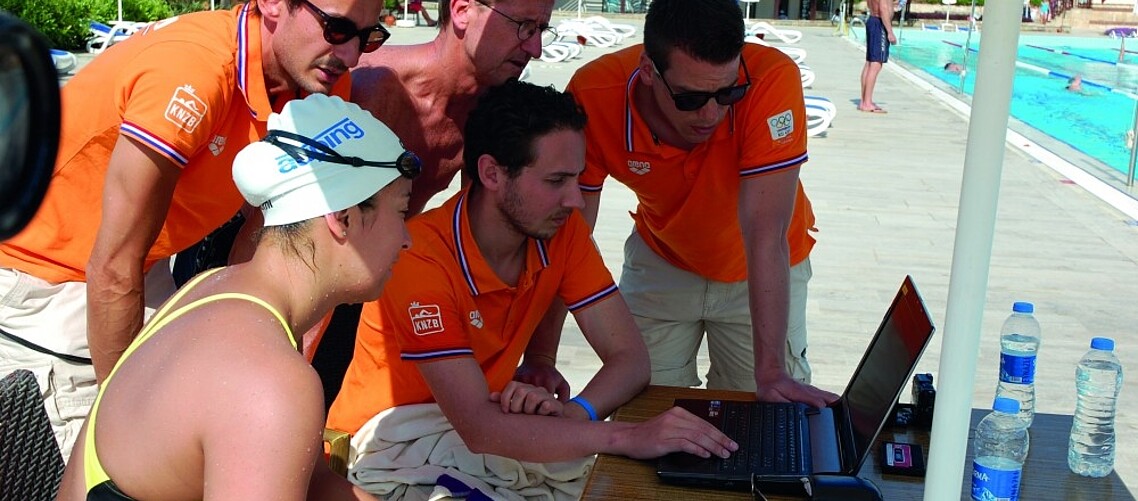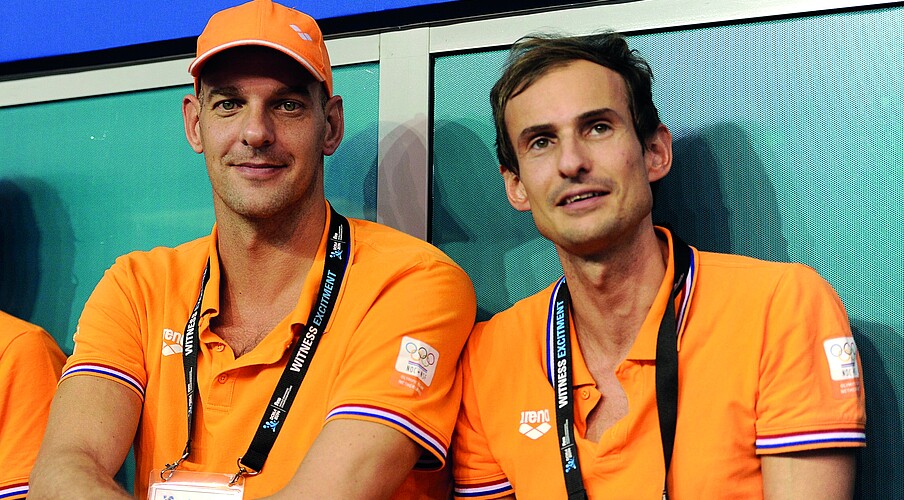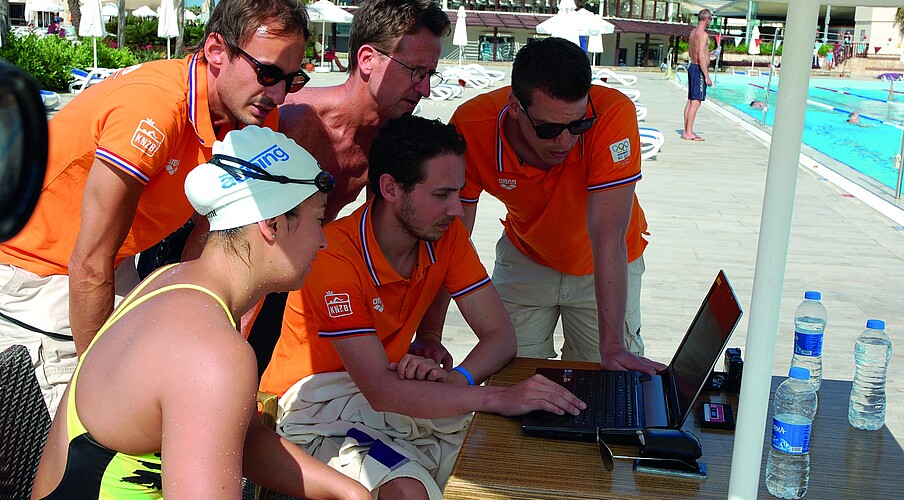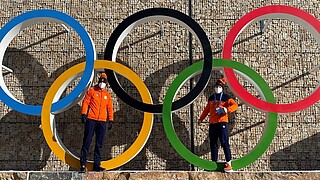Even the best athlete can improve their performance. The task of a coach, says Patrick Pearson, an alumnus of RSM and coach for the Royal Dutch Swimming Federation (KNZB), is finding out how: finding those minuscule opportunities for improvement that could shave a hundredth of a second from a time and close the gap between a silver or gold medal.
That Pearson has reached the highest level of coaching in the Netherlands reveals his talent for precisely this. Among the eight elite athletes he is responsible for is Dutch two-time gold medallist Ranomi Kromowidjojo. Pearson is currently preparing Ranomi for the Rio 2016 Olympics. It is a role he has spent a good deal of his 33 years preparing for, both poolside and in other less-expected ways. ‘People find it strange that I was once a consultant,’ he says. ‘But so much of what makes a good consultant also makes a good coach.’
The road to success
By his own account, Pearson himself is an average swimmer. He only began swimming at seven, he says, after his doctor recommended he take up the sport to strengthen his lungs. A coaching course at 17 saw his interest shift from inside to outside the pool.
With swimming, even incremental improvements are easy to measure. It was the thrill of this feedback that inspired Pearson to continue coaching while he pursued his education, including his MSc in Strategic Management (2009) at RSM.
He had no intention of turning coaching into a full-time occupation. But he applied himself to learning the techniques used by the best. As his interest grew, so did the number of hours he dedicated to it. By the age of 22 he was coaching 20 hours a week. By the time he was working full-time as a consultant at Accenture, his day began at 04:45 and finished at 21:00.
In April 2010, an opportunity arose for a full-time six-month position on a youth regional programme at KNZB. The feedback was positive, but with no long-term position available, he was encouraged to take a job coaching at a much lower level, with opportunities to develop himself. The salary was €800 a month; the hours long. This was a turning point, he says. ‘I decided to invest in myself for two years. If nothing came of it, I would move on.’ His investment paid off. In 2013 he rejoined the youth regional programme at KNZB and, in the summer of 2014, was asked to coach Ranomi, along with a team of other top athletes.
High-level performance
Pearson credits his success to his dedication. But other key qualities have helped, he says, including his strong analytical and managerial skills. ‘I began developing my analytical and managerial skills during my degree and then in my career as a consultant,’ he says. ‘These have all given me an advantage.’
His job as coach of eight athletes – including three Olympians – is to manage and improve each one of them ‘physically, physiologically, mentally, technically and tactically’. His first task when he joined the team, he says, was taking stock of the situation and gathering a team of experts around him. He then developed training programmes for each individual in his team. ‘Every swimmer is trained and managed differently,’ he says.
Programmes vary on everything from the intensity of the training (‘some athletes have tougher sets, others easier,’ he says), to how they are motivated, taught techniques and mentally prepare for a race. ‘Every difference in their characters is factored into your strategy for them.’
Every swimmer has areas in which they can improve, and this is where the analytical part comes in. ‘It is my task to determine where the room for improvement is,’ he says.
With two-time Olympic gold medal winner Ranomi, he decided a complete restart was in order. ‘After reaching a peak like this, many athletes struggle with motivation,’ he says. ‘It was through identifying an area she could improve on that Ranomi found her motivation again.’
With the Olympics approaching, Ranomi’s strategy is now set; her daily training regimen the same. ‘The only difference is that whereas before she was giving 98 per cent in training, now it’s 100 per cent, and the same goes for me,’ he says.
It is when describing Ranomi’s former coach that Pearson touches on the qualities that differentiate the good coach from the exceptional one. ‘Jacco Verhaeren is one of the best coaches we have seen in the Netherlands,’ says Pearson. Why? ‘His personality. He had this way of being calm and confident with the swimmers, communicating clearly.’
So what of Pearson’s personality? He admits he brings his own set of unique qualities to the sport, among them a natural tendency to stay calm. ‘If I am nervous or excited, they are going to be nervous and excited too,’ he says. ‘Staying calm and confident in these situations is part of who I am, and something I can help instil in them.’
For information on the activities of the KNZB, visit the KNZB website.
This article was first published in RSM Outlook summer 2016. You can download RSM Outlook here.



